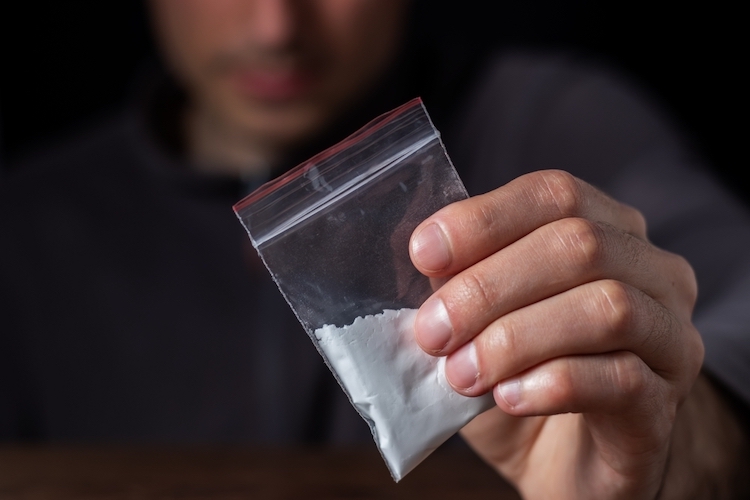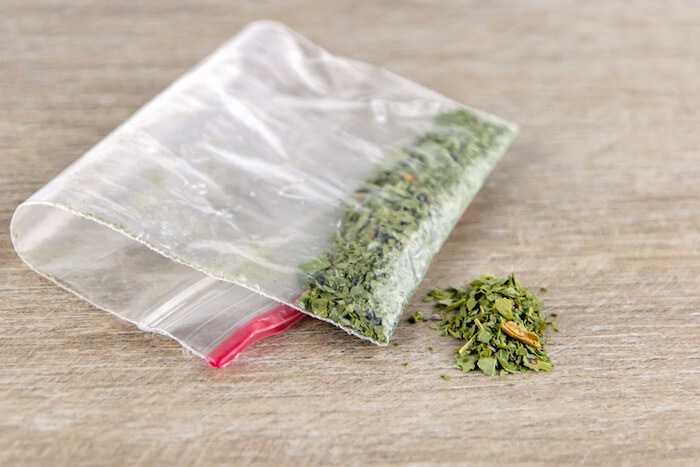Angel Dust is a type of Phencyclidine (PCP) and is a mind-altering drug or hallucinogen that comes in the form of a white powder, often resembling cocaine. Angel Dust is just one common name for PCP. Others include Supergrass, Rocket Fuel, Peace Pill, and more.
It’s an extremely addictive drug due to its mind-altering properties that make the user disassociate and experience a distorted reality where sights, colours, sounds and self-awareness change. Although not one of the more common drugs, it’s wise to be aware of it in case you come into contact with it, have a PCP addiction yourself or know a loved one who is.
If you are going through PCP addiction or know someone who is, we recommend you contact us for 24/7 professional advice for overcoming substance abuse.
What is Angel Dust?
For those wondering, “What is Angel Dust?” it’s a PCP and a mind-altering drug developed in the 1950s initially as an intravenous anaesthetic. However, after realising that there were harmful and potentially deadly neurotoxic side effects to this application, it was banned for human medical use.
There are a few ways that people ingest PCPs like Angel Dust. In its pure form, it’s a white crystalline powder that closely resembles cocaine, hence the frequent mix-up between the two. It easily dissolves in the slightest amount of liquid, so some might take them in tablet form. Alternatively, people mix the Angel Dust in liquid and dip tobacco or marijuana in it to create what is commonly referred to as “killer joints.”
You can become extremely dependent on PCP due to its highly addictive nature. Users can become addicted to this drug because of its powerful mind-altering effects that change their perception of reality for a short time. It induces an intense reaction, almost as if the user has no control over their body and mind, which can last up to a day.
Other names for PCP include:
- Animal tranq
- Black dust
- Boat
- Cliffhanger
- Crystal T
- Dipper
- Dust joint
- Goon dust
- Happy sticks
- Horse tranquiliser
- Kools
- Lethal weapon
- Magic dust
- O.P.P.
- Paz
- Peter Pan
- Shermans
- Trank.
The Effects of PCP
What exactly do you feel when you take PCP? There are different ways to get high on the drug, but the effects are more or less the same.
Short-Term Effects
How you react immediately or shortly after taking PCPs like Angel Dust varies. One factor to consider when evaluating the short-term effects of the substance is the dosage taken and how it was consumed.
For example, when dipping tobacco or marijuana in an Angel Dust solution, some may feel effects in just a few minutes unless tolerance has risen considerably. Swallowing the drug takes slightly longer, anywhere from 30 minutes to an hour.
The amount of time it takes to feel the effects varies, and so does the duration of the high. For those with a higher tolerance, the effects may last a few hours. However, for others, they could last up to 48 hours before completely subsiding.
Long-Term Effects
Just as with any drug abuse, an addiction to PCP can come with long-standing negative effects. Since it is a powerful hallucinogenic drug, frequent and high dosages can impair one’s perception of reality. They may be in a semi-permanent state of confusion with memory loss, impaired decision-making abilities, speech problems and a heightened state of paranoia.
Long-term PCP users may experience severe depression and anxiety when not high. Due to the heavy psychological toll addiction has, those with addictions may also undergo drastic and fast weight loss. These negative effects cause a feedback loop, piling on more physical and psychological problems.
Dangers and Risks of PCP Use
People who abuse PCP pose a risk to themselves and to those around them. When addicted to Angel Dust, due to the heightened state of paranoia and depression, people can act rashly and violently. Their intentions and actions can be unpredictable, causing fear in those around them.
They may try to harm themselves due to these depressive and suicidal thoughts or think that everyone around them is hostile because of a paranoid mentality. This behaviour may land the individual in trouble with the authorities if extreme.
The biggest danger comes when mixing PCP with marijuana or “lacing” it with other drugs. Due to its illegal nature, Angel Dust can only be found through unofficial channels where quality control is impossible. Therefore, people may purchase what they believe to be Angel Dust only for it to be mixed with other hallucinogens, which can be fatal.
What Is the Angel Dust Addiction Cycle?
Sometimes, it’s not easy to spot the signs of addiction in yourself or your loved ones. Many people may be introduced to PCP in social situations and then unintentionally develop a dependency on it.
The reason why many people become addicted to Angel Dust is due to its powerful hallucinogenic qualities that might make people feel euphoric during the high. They then chase this feeling when sober, leading them back to taking the substance.
Here are some common signs and symptoms of PCP addiction:
Behavioural Symptoms
- Constantly attempting to stop PCP use but failing
- Behaving erratically, unpredictably or violently
- Continuing to seek out the high that PCP provides, even in the face of negative backlash.
Physical Symptoms
- Sweating
- Dizziness
- Sudden muscle spasms
- Blurry vision
- Vomiting
- Numb sensation in limbs.
Cognitive Symptoms
- Paranoia
- Delusions
- Memory loss
- Inability to focus
- Speech problems
- Impaired decision-making abilities.
Treatment and Recovery from PCP Addiction
The first step to recovering from addiction is to recognise the need for help and take affirmative action. If you notice a loved one going through signs of addiction, starting a gentle dialogue may help them begin the help they need.
Once they recognise the need for professional help, they can begin consulting with professionals to assess their personalised needs. Going to rehab is a valid and recommended option for anyone going through addiction for a more structured form of help. Here’s what you may expect in a rehab treatment programme.
Detoxification
The first step of recovery from Angel Dust addiction is to detox the body of any remaining substances. This is often the hardest step for many, as they can experience intense and unbearable withdrawal symptoms, especially if they’ve been long-time abusers. Common withdrawal symptoms include vomiting, extreme weakness, mood swings, inability to eat, and much more. These symptoms are often felt a few hours after beginning the detox process.
Residential rehabs provide support through this process by providing as much clinical help as necessary as individuals go through withdrawal symptoms. However, detox requires immense dedication and willpower to see long-term success.
Behavioural Therapy
One of the more crucial parts of the recovery process is the psychological rewiring of the brain to reduce and eventually eliminate dependency on the substance. Many types of therapies and treatments can help, such as:
- Cognitive behavioural therapy
- 12-step facilitation therapy
- Family therapy
- Dialectical behaviour therapy
- Matrix model
- And more.
Support Groups
Support groups and addiction support from friends and family help people struggling with addiction speak up about their struggles and open a line of communication and transparency. Support groups help everyone involved relate to each other’s struggles to develop a sense of companionship.
Support groups aren’t exclusive to residential rehab facilities. Many non-profit independent organisations provide seminars, meetings and support sessions for anyone. They’re free to sign up for, and individuals may find the much-needed social support they require there.
The Benefits of Medically Assisted Detox in Residential Rehab
Medically assisted detox is when an individual admits themselves into residential rehab care to receive clinical help with the detoxification process. Sometimes, withdrawal can be deadly. With personalised medical help, individuals can receive necessary care for better overall long-term success with recovery.
Relapse Prevention Strategies
Avoiding relapse can be extremely challenging. A few strategies to ensure your long-term recovery success include:
- Continuing to attend support groups
- Accountability exercises, such as journaling
- Taking up new hobbies
- Meeting new people outside of previous social circles
- Physical exercise
- Mindfulness exercises.
Preventing PCP Addiction
Preventing addiction to Angel Dust requires preventative measures and constant support. Education on the PCPs and their effect on your body may help deter people from interacting with the drug. Additionally, in-depth insight into how addiction can ruin lives helps with making more informed decisions.
Early intervention is key if you notice yourself or loved ones exhibiting early signs of addiction. Opening up dialogue in a non-invasive manner and extending a helping hand can help prevent long-term dependencies and negative side effects. If you feel yourself developing an addiction and have the willpower and self-awareness to seek help, you can reach out to us and our 24/7 helpline.
Seek Help for PCP Addiction
Many might wonder, “What is Angel Dust addiction?” and fail to notice signs in friends or loved ones. If you or someone around you might require professional help from a PCP addiction, seeking early intervention or medical support is crucial.
Withdrawal from PCP can be painful and arduous. Our clinics provide non-judgmental care and support for anyone. We also provide a free online assessment, available at any time. Full recovery from PCP addiction is possible with the right education, tools and support. Don’t hesitate to seek help, as it could be a life-changing decision.
Fill out our contact form or phone 0800 170 1222 for free support and advice. At Step by Step Recovery, our services are fully confidential, and we can help you to find professional help.




